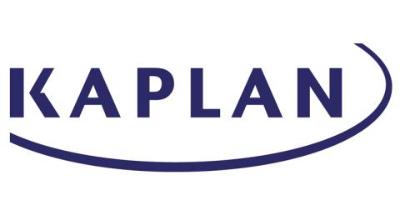Embracing Technological Innovations: The Future of the CPA Profession

The accounting profession is experiencing a paradigm shift, driven by the rapid adoption of technology and the integration of artificial intelligence, machine learning, and advanced analytics in various aspects of financial services. As CPAs, it is crucial to embrace these innovations and adapt to the changing landscape in order to maintain a competitive edge and ensure continued professional success. In this article, we will explore the impact of emerging technologies on the CPA profession and discuss strategies for staying ahead in this fast-evolving industry.
The Rise of AI and Machine Learning in Accounting
Artificial intelligence (AI) and machine learning are revolutionizing the accounting profession by automating repetitive tasks, reducing errors, and providing insights through advanced data analytics. These technologies are capable of processing vast amounts of data at an unprecedented speed, allowing CPAs to focus on more strategic and value-added tasks, such as financial analysis and advisory services.
Some notable AI applications in accounting include:
- Robotic Process Automation (RPA): RPA is streamlining routine tasks, such as data entry, reconciliation, and invoice processing, which can significantly reduce human error and increase efficiency.
- Natural Language Processing (NLP): NLP enables machines to understand and interpret human language, making it possible to analyze financial documents, extract relevant information, and generate reports with minimal human intervention.
- Advanced Analytics: AI-driven analytics can identify patterns, trends, and anomalies in financial data, providing CPAs with valuable insights that can help improve decision-making and financial forecasting.
The Impact of Blockchain on Financial Transactions
Blockchain, the underlying technology behind cryptocurrencies like Bitcoin, is set to have a significant impact on the accounting profession. As a decentralized digital ledger, it offers a secure, transparent, and efficient way to record and verify financial transactions. This has several implications for CPAs:
- Enhanced Trust and Security: Blockchain's immutability and decentralized nature provide an added layer of trust and security, reducing the risk of fraud and tampering.
- Real-Time Auditing: With blockchain, financial transactions can be recorded and verified in real-time, making it possible for auditors to conduct continuous, real-time auditing.
- Smart Contracts: These self-executing contracts with the terms of the agreement directly written into code can streamline various financial processes, such as invoicing and payments, leading to increased efficiency and reduced costs.
The Growing Importance of Cybersecurity
As technology advances, so do the risks associated with cyber threats. CPAs must be aware of the growing importance of cybersecurity in protecting sensitive financial data and maintaining client trust. By understanding common cyber threats and implementing best practices, CPAs can mitigate risks and ensure the security of their clients' information. Some key strategies include:
- Employee Training: Regularly educate employees on cybersecurity best practices and the latest threats.
- Data Encryption: Encrypt sensitive financial data to protect it from unauthorized access.
- Multi-Factor Authentication: Implement multi-factor authentication for accessing financial systems and client data.
- Regular Security Audits: Conduct periodic security audits to identify vulnerabilities and ensure compliance with industry standards.
The Evolving Role of CPAs
To thrive in the era of technological innovation, CPAs must adapt and expand their skill sets. Some critical areas for professional development include:
- Data Analytics: Mastering data analytics tools and techniques can help CPAs provide valuable insights to clients, improving decision-making and driving business growth.
- Blockchain and Cryptocurrency: Gaining an understanding of blockchain technology and cryptocurrencies can position CPAs as experts in a rapidly growing niche.
- Cybersecurity: Developing expertise in cybersecurity can help CPAs protect their clients' sensitive financial data and maintain trust in a digital age.
- Soft Skills: As technology automates routine tasks, the importance of soft skills, such as communication, critical thinking, and problem-solving, will increase. CPAs must be able to convey complex financial information in a clear and concise manner to clients and colleagues.
- Regulatory Compliance: Staying up-to-date with evolving regulations and industry standards, particularly in areas such as data privacy and digital currencies, is essential for CPAs to provide accurate and timely advice to clients.
Embracing Continuous Learning and Adaptability
The rapid pace of technological innovation means that CPAs must be committed to continuous learning and adaptability. By staying informed about emerging trends and developments, CPAs can be better prepared to navigate the challenges and opportunities that lie ahead. Some strategies for fostering a growth mindset include:
- Professional Development: Actively pursue professional development opportunities, such as workshops, conferences, and training courses, to expand your knowledge and skills.
- Networking: Engage with industry peers and experts to stay abreast of the latest trends and best practices.
- Collaboration: Collaborate with other professionals, both within and outside the accounting field, to exchange ideas and learn from different perspectives.
- Mentorship: Seek mentorship from experienced professionals and provide mentorship to junior colleagues, fostering a culture of learning and knowledge sharing within the profession.
The accounting profession is undergoing a significant transformation, fueled by technological innovations such as AI, machine learning, blockchain, and an increased focus on cybersecurity. By embracing these changes and proactively developing the necessary skills and expertise, CPAs can ensure continued professional success and maintain their relevance in an ever-evolving landscape. Embracing continuous learning, adaptability, and collaboration will be essential for CPAs to thrive in this new era of accounting and secure their position as trusted financial advisors in the digital age.
Share This Article
What's Trending?
Trending topics & tools for the CPA community
How Firms are Rethinking Reasonable Comp (Quick Video)
It’s a short video and makes the value of repeatable, data-backed approach clear (especially compared to spreadsheets, gut checks and one-off calculations).
Learn how 8am CPACharge delivers clarity and confidence for accounting firms.
8am™ CPACharge brings invoices, payments, and reconciliation together in a solution designed to make your day easier from start to finish.
Seniors on Social Security Could Face $460 Monthly Cut to Benefits
Jim Komoroski, RSSA®, is quoted in Newsweek, offering expert insight into the projected monthly cuts to Social Security benefits should Congress fail to act.
Resources
Valuable information provided by our sponsors.
Specialize in Social Security
Looking to enhance your retirement planning expertise? Your solution: pursue the Registered Social Security Analyst®...
CPAdirectory members have access to discounted auto and home insurance
At CPAdirectory, we think it's a good thing to provide our members with access to...
Free CPE Course: ChatGPT for Tax Pros — Limited Offer
CPAdirectory and CCH CPELink are giving you free access to the on-demand course: ChatGPT for...
PE Deals In Accounting: Valuations, Structure, Tradeoffs
In this webinar, you’ll hear from firm leaders and industry experts who will share real-world...
Stand Out as a Trusted Social Security Expert with the RSSA® Designation
Designed for CPAs, the Registered Social Security Analyst® (RSSA®) designation provides advanced training to help...
How Firms are Rethinking Reasonable Comp (Quick Video)
It’s a short video and makes the value of repeatable, data-backed approach clear (especially compared...













